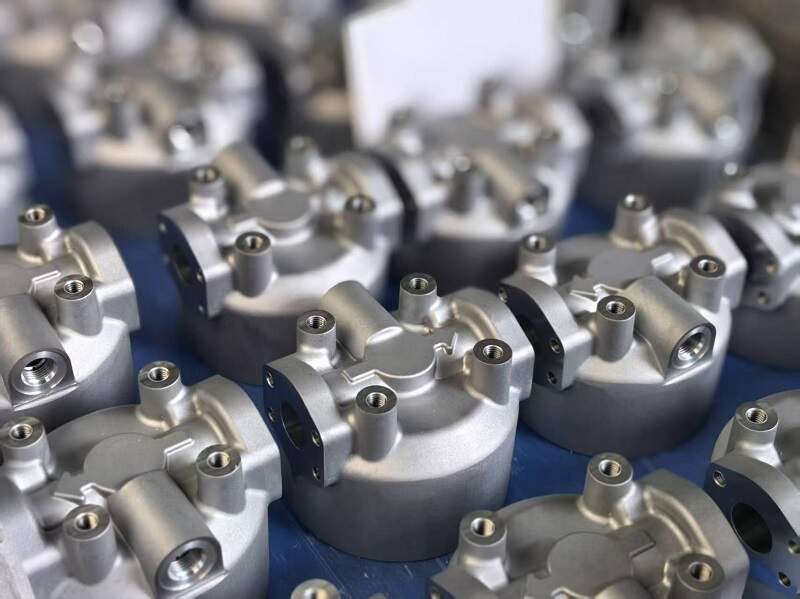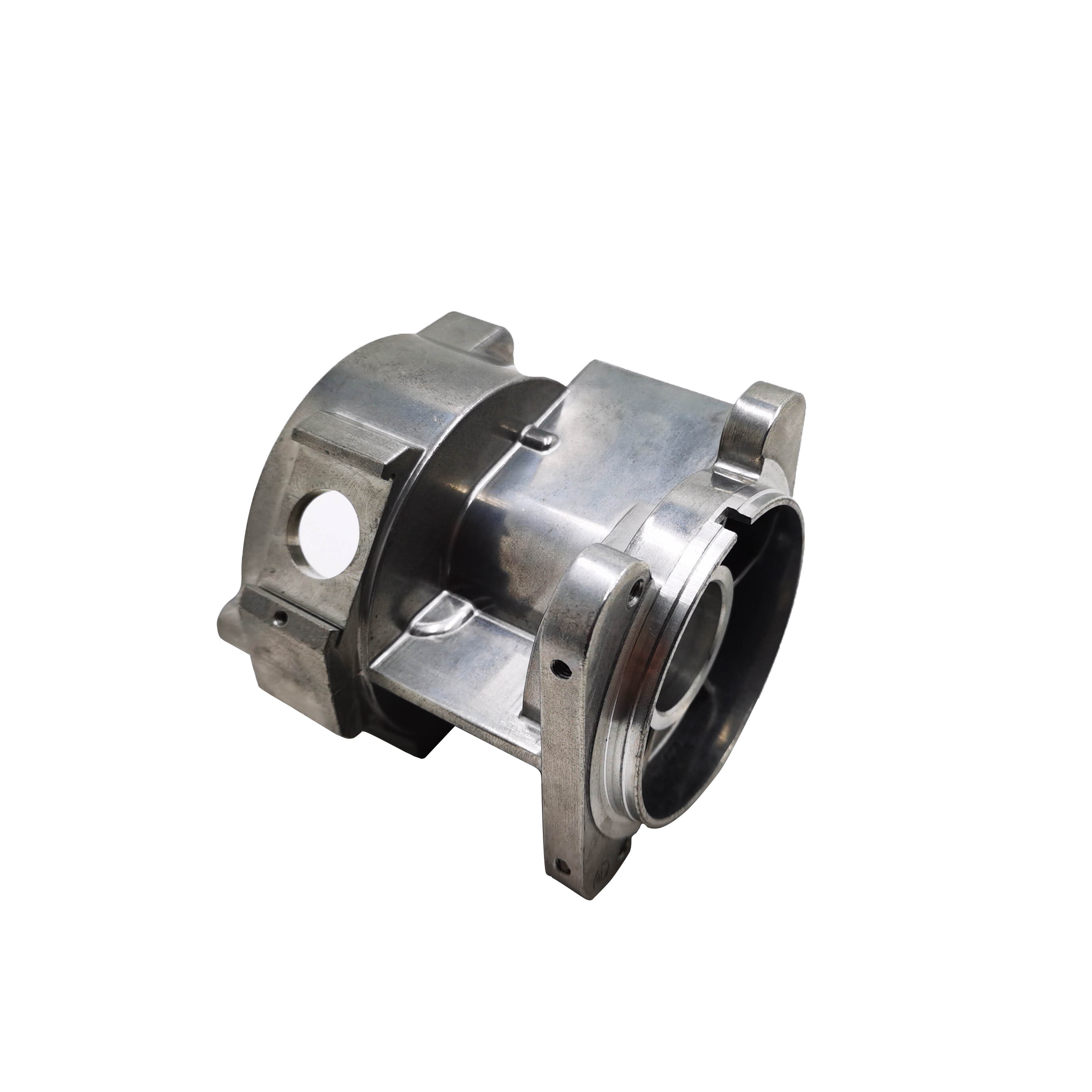How Factory Services Enhance Production Performance and Top Quality in Industrial Applications
Factory solutions play a necessary duty in improving production performance and quality throughout different industrial applications. By applying sophisticated metal spreading strategies, these solutions assure parts are made with precision and consistency. This not just minimizes lead times yet likewise minimizes waste, fostering far better collaboration in between shops and makers. The effect of high-grade components on functional efficiency increases essential questions concerning the future of industrial manufacturing. What innovations lie in advance in this advancing landscape?
The Role of Factory Providers in Streamlining Manufacturing Processes

Furthermore, shops usually provide experience in alloy development, enabling makers to make use of innovative products that improve product efficiency. The cooperation between foundries and makers promotes a far better understanding of manufacturing demands, resulting in enhanced procedures and boosted item layouts. By leveraging foundry solutions, producers can attain higher versatility, adapt to transforming market needs, and preserve competitiveness in the market. In general, the duty of factory services is necessary in helping with a more reliable and cost-efficient manufacturing landscape.
Advanced Technologies in Factory Workflow
Innovative technologies are transforming foundry operations, considerably improving performance and accuracy. Automation plays a vital function, with robotic systems simplifying repetitive tasks such as molding and material handling. Furthermore, innovations in computer-aided layout (CAD) and computer-aided manufacturing (CAM) systems make it possible for foundries to create complicated geometries with higher precision and minimized product waste.
Moreover, the integration of expert system (AI) and equipment knowing boosts quality assurance by monitoring processes in real-time and forecasting possible problems prior to they happen. Using sophisticated products, such as light-weight alloys and compounds, better boosts the performance characteristics of actors items.
In addition, 3D printing innovation is reinventing prototyping and tooling, permitting for rapid personalization and decreased lead times. Jointly, these sophisticated modern technologies not only boost manufacturing effectiveness but likewise ensure that the end products meet stringent top quality standards, placing foundries at the leading edge of contemporary industrial applications.
Decreasing Lead Times Via Efficient Foundry Practices
Reliable factory techniques play an important function in lessening lead times within manufacturing environments. By applying streamlined manufacturing processes and progressed scheduling strategies, suppliers can improve process and optimize resource allotment. These enhancements not just speed up outcome but also add to general functional performance.
Structured Production Processes
Simplifying manufacturing procedures is necessary for reducing preparations in the manufacturing industry. Reliable shop methods, consisting of maximized operations and resource administration, play an essential function in attaining this objective. By minimizing waste and enhancing interaction among teams, shops can greatly improve their operational performance. The execution of standard procedures also contributes to regular quality and faster turn-around times, enabling manufacturers to react even more quickly to market needs. In addition, the integration of innovative modern technologies, such as automation and real-time surveillance systems, assists in identifying traffic jams and facilitating prompt interventions. Generally, a concentrate on streamlined production processes not just increases lead times yet additionally improves the total competition of industrial applications, making sure that products satisfy consumer expectations properly.
Advanced Organizing Techniques
Reliable manufacturing procedures naturally lead manufacturers to discover sophisticated scheduling strategies as a way to further lower preparations. By utilizing find more info advanced algorithms and software program, foundries can optimize operations, straightening production schedules with need forecasts and resource availability. Methods such as Just-In-Time (JIT) scheduling reduce inventory prices while guaranteeing timely material distribution, therefore enhancing functional efficiency. Furthermore, integrating real-time information analytics allows shops to prepare for prospective delays and change routines proactively. This adaptability not just improves operations but additionally enhances general productivity. Collective preparation with vendors and consumers can cultivate a much more integrated supply chain, more minimizing lead times. Ultimately, these advanced organizing strategies encourage shops to accomplish higher effectiveness and premium high quality in their manufacturing processes.
Guaranteeing Accuracy and Top Quality in Metal Casting
Ensuring accuracy and top quality in metal spreading calls for a careful method that encompasses every stage of the manufacturing procedure. This process begins with cautious design and engineering of the molds, guaranteeing they can endure the liquified metal's temperature level and stress. The choice of top quality resources is essential, as impurities can compromise the last product.
Once the products are prepared, specific temperature control during melting and putting is fundamental to achieve the desired residential properties in the cast metal. Checking solidification and cooling prices additional warranties dimensional precision and surface finish.
Quality control techniques, such as non-destructive screening and assessment, are vital to determining flaws early in the procedure. Aluminum Foundry. Additionally, using experienced personnel who comprehend the subtleties of metal spreading contributes significantly to preserving high criteria. Overall, these methods collectively boost the integrity and efficiency of actors elements in various industrial applications
Decreasing Waste and Maximizing Resource Usage

In addition, reusing scrap steel within the factory itself can substantially lower waste, transforming by-products into useful sources. Lean making concepts also add to squander decrease by simplifying processes and getting rid of unnecessary actions, resulting in much more reliable operations.
Regular upkeep of devices assurances peak efficiency, protecting against failures that can result in squandered materials. By focusing on these methods, shops not just minimize prices however also add to lasting techniques, lining up with the growing need for eco liable production methods in commercial applications.
The Affordable Benefit of High-Quality Components in the marketplace
High-quality components provide a significant competitive advantage in the factory market, where precision and toughness are critical. Manufacturers that prioritize see page remarkable materials and craftsmanship can boost product efficiency and dependability, resulting in boosted consumer satisfaction. This benefit is specifically evident in industries such as vehicle and aerospace, where element failure can have catastrophic consequences.
Top notch components commonly result in reduced maintenance prices and extended product life expectancies, which can be appealing marketing points for potential clients. As market needs expand for sustainable and efficient modern technologies, the emphasis on high quality becomes much more critical. Firms that buy top notch factory services not just enhance their production processes but also separate themselves from competitors who may compromise high quality for expense savings. The dedication to high-quality components inevitably translates into a more powerful market position and lasting business success.
Frequently Asked Concerns
What Kinds of Products Do Foundry Provider Normally Collaborate With?
Shop solutions commonly work with metals such as aluminum, steel, iron, and brass, along with various alloys. They also take care of materials like composites and porcelains, accommodating varied industrial demands and requirements in producing procedures.
How Do Shop Solutions Influence Overall Supply Chain Administration?
Shop solutions substantially boost supply chain administration by streamlining material sourcing, minimizing lead times, and ensuring regular quality. Their capacity to offer customized solutions fosters cooperation amongst stakeholders, ultimately improving general operational effectiveness and responsiveness in manufacturing.
What Industries Benefit The Majority Of From Shop Services?
Industries such as automobile, building, aerospace, and consumer items significantly gain from factory services. These sectors count on precision spreadings to fulfill stringent top quality criteria and boost their overall production procedures and site here product efficiency.
Are Factory Services Ecologically friendly and sustainable?
Shop solutions can be eco friendly and lasting, especially when using innovative innovations and processes - Aluminum Casting Company. Developments such as reusing products, lowering discharges, and maximizing energy use add to lessening their environmental influence in industrial applications

Exactly How Can Companies Select the Right Foundry Solution Supplier?
Business can choose the appropriate foundry company by assessing competence, manufacturing capacities, high quality certifications, innovation used, customer evaluations, and sustainability techniques while ensuring positioning with their specific job requirements and lasting organization goals.
Factory services play a necessary function in improving manufacturing effectiveness and quality across different commercial applications. The collaboration between factories and producers promotes a better understanding of manufacturing needs, leading to enhanced processes and boosted item layouts. Effective shop methods play a crucial duty in minimizing lead times within manufacturing settings. By using innovative algorithms and software, factories can optimize workflows, straightening production routines with demand forecasts and resource accessibility. Firms that invest in top notch shop services not just boost their manufacturing procedures yet also distinguish themselves from competitors that might compromise high quality for expense financial savings.